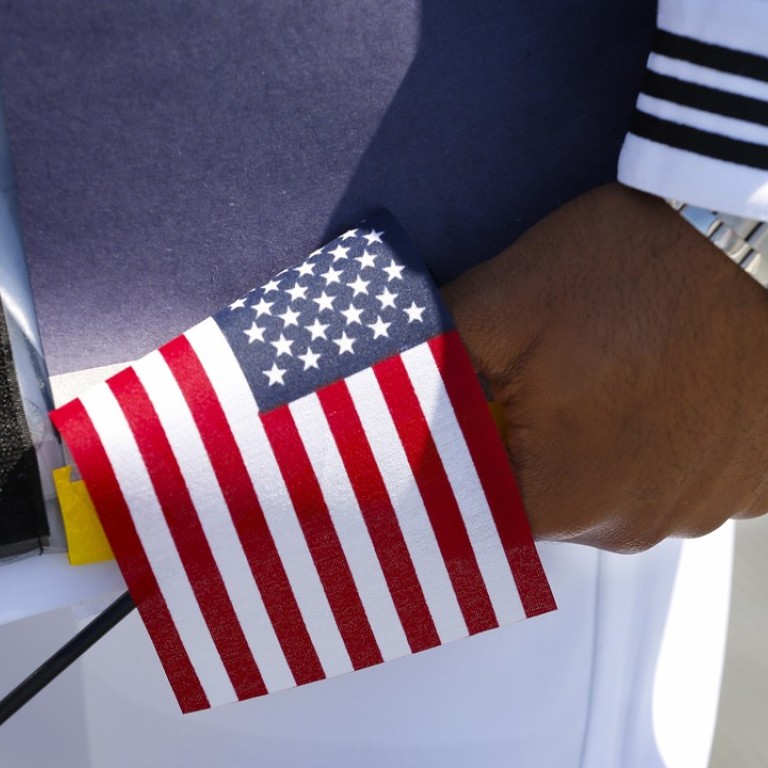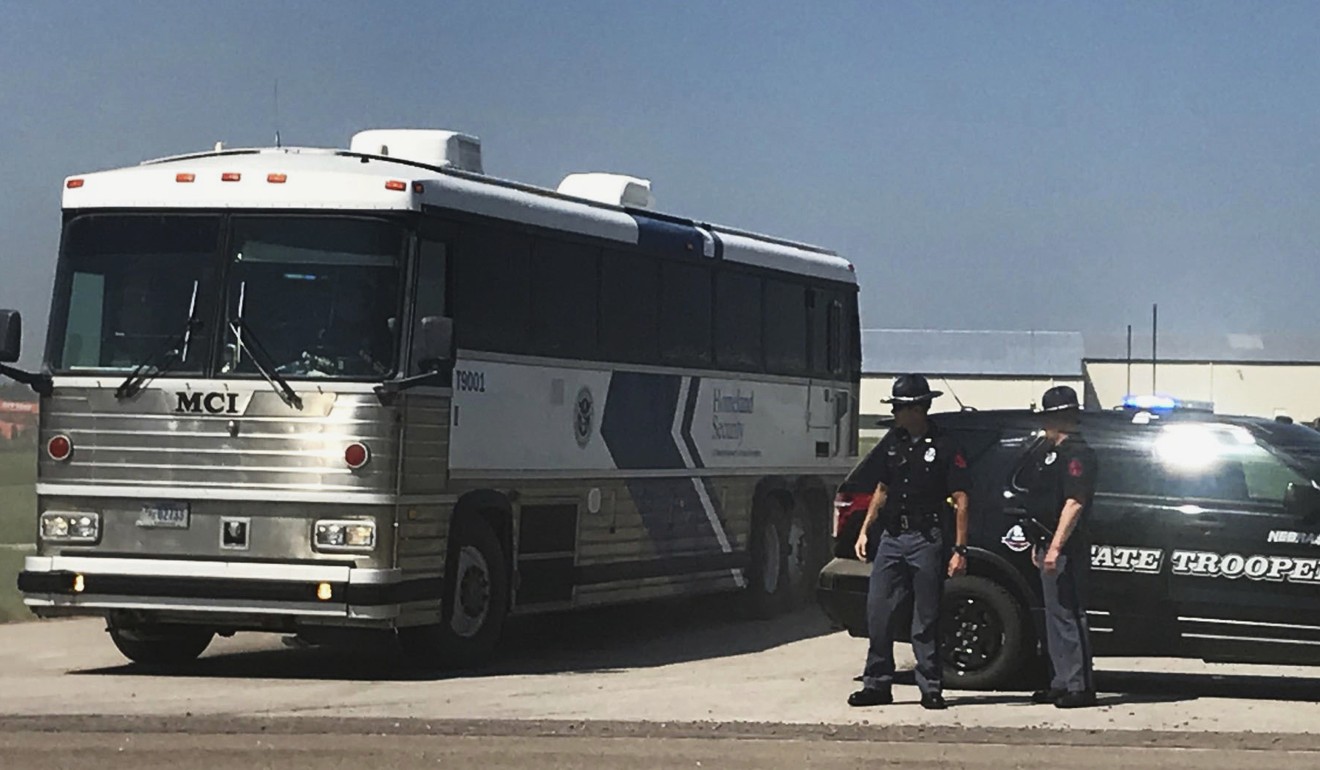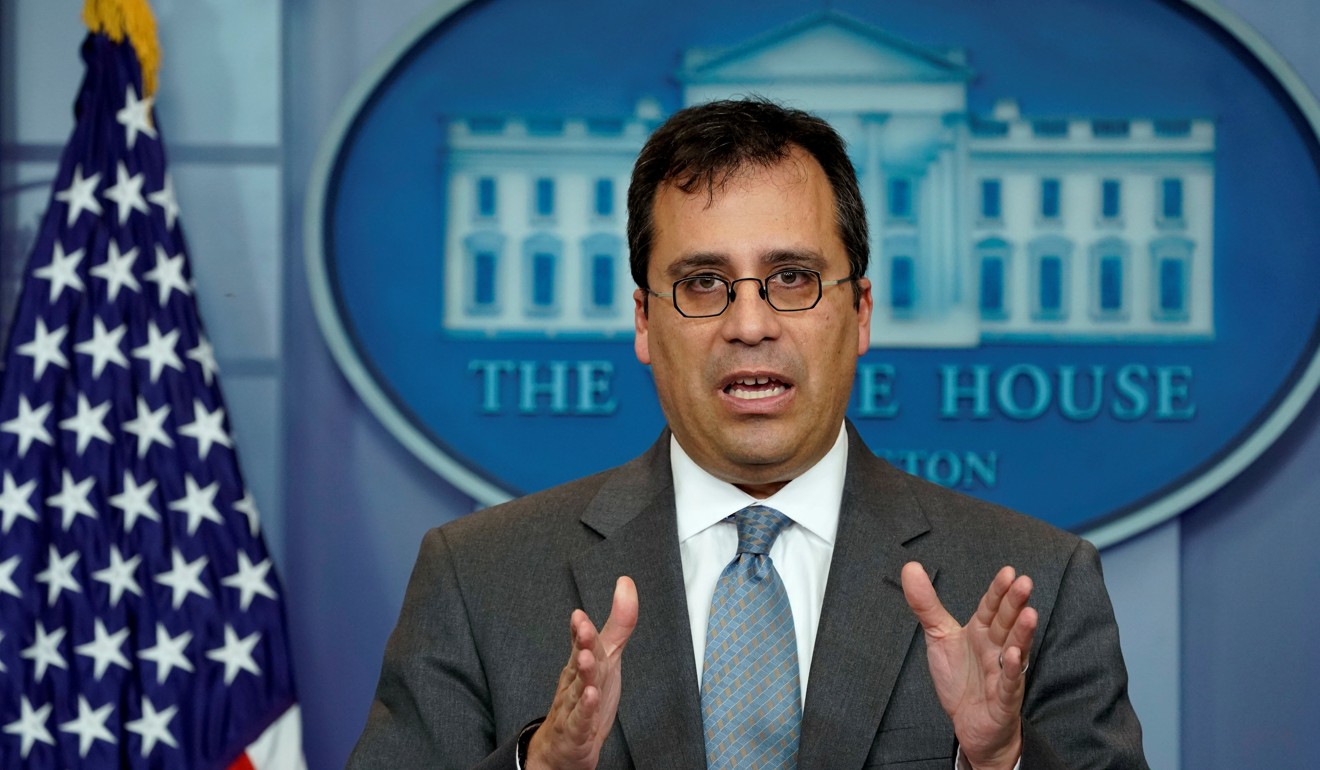
Naturalised Americans could lose citizenship with thousands of cases under review
The Trump administration seeks to identify people who have committed fraud during the citizenship or permanent residence process, or who committed crimes before naturalising and did not report them
Federal officials are reviewing the citizenship petition process of more than 2,500 people who became naturalised American citizens, in search of possible fraud committed during the process.
A spokeswoman for the US Citizenship and Immigration Service (USCIS) told Spanish-language news agency EFE this week that about 100 of the 2,500 cases “have a reasonable suspicion” and were referred to the US Department of Justice (DOJ).
The DOJ will evaluate whether to initiate legal proceedings in these cases. Part of the process could include revoking a person’s US citizenship, spokeswoman Claire Nicholson told EFE.
The review is part of a multimillion-dollar effort by the Trump administration, which seeks to identify people who have committed fraud during the process to obtain citizenship or permanent residence, or who committed crimes before naturalising and did not report them, officials have said.

This summer, the government announced it asked a group of lawyers and investigators, operating under Customs and Immigration (USCIS), to review the naturalisation procedures.
USCIS staff has been reviewing potential cases for citizenship revocation since January 2017, said the agency’s director, L. Francis Cissna.
The Department of Homeland Security (under which USCIS operates) also plans to devote more than US$207.6 million in a separate initiative involving the Immigration and Customs Enforcement (ICE).
ICE will use the funds to hire new agents for the National Security Investigations division to look for possible citizenship and green card fraud, according to ICE’s budget plan for 2019.
One of the tasks is to identify applicants who were ordered to leave the country but stayed behind and naturalised under another identity.
To determine possible cases of fraud, researchers focus on fingerprint records on deportation orders from the 1990s and prior years, which were not digitised. This information is now being compared with more recent files. The authorities plan to refer some 1,600 of these types of cases to the DOJ.
Efforts to revoke citizenship are not new but have accelerated under the Trump administration.

Between 1990 and 2017, there were 305 legal cases of denaturalisation, an average of 11 per year. Under former President Barack Obama, the number of cases increased to 15 in 2016, his last full year in office. The number of cases doubled to 30 in 2017 under Donald Trump and is expected to be higher this year.
Immigration activists and lawyers have said they fear the plan is to scare immigrants. They said the measures could affect people who committed fraud decades ago.
“I’m worried that people who have been citizens for a long time will now be targeted for denaturalisation, and that the effort to defend against a federal denaturalisation claim is so expensive that people will just give up,” Matthew Hoppock, a Kansas City immigration lawyer who has been following the changes in denaturalisation policy, told the Miami Herald in July.
Hoppock was referring to cases such as that of Norma Borgono, a 63-year-old Peruvian woman who has lived in Miami for 28 years.
Borgono was sentenced in 2012 to one year of house arrest and four years of probation for her involvement in a US$24 million fraud a decade ago. As secretary of an export and import company called Texon Inc., she prepared documents for her boss, who pocketed money from loans fraudulently received from the US Export-Import Bank.
Borgono did not profit from the fraud and cooperated with the authorities in the investigation.

Borgono, who has a rare kidney disease, served her sentence and paid the restitution of US$5,000 little by little. But this year, a week after the birth of her granddaughter, she received a letter from the federal government warning her that they are seeking to revoke her citizenship and deport her to Peru.
The government alleges that she naturalised after the fraudulent operation began. Although she had not been charged when she petitioned for citizenship, the Justice Department now argues that Borgono lied by not disclosing her illegal activities in the application.
Borgono’s lawyers argue that the case represents an abuse of federal officials’ discretion in filing cases of “denaturalisation”.
The USCIS said in a statement to the Herald that people who has used a false identity to naturalise should not be surprised to be referred to the Department of Justice to withdraw their citizenship.
“We go to great lengths to ensure individuals aren’t susceptible to instances of error, misunderstanding, or special circumstances,” the statement said.

